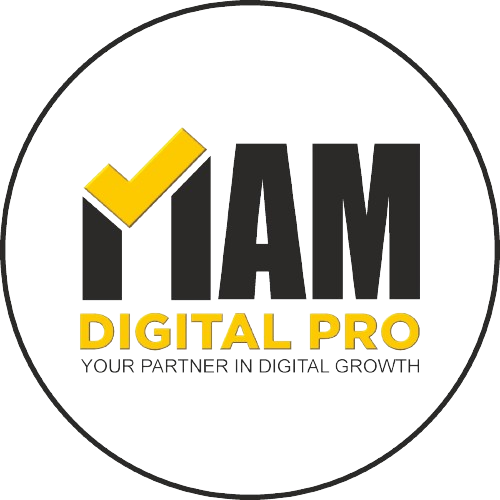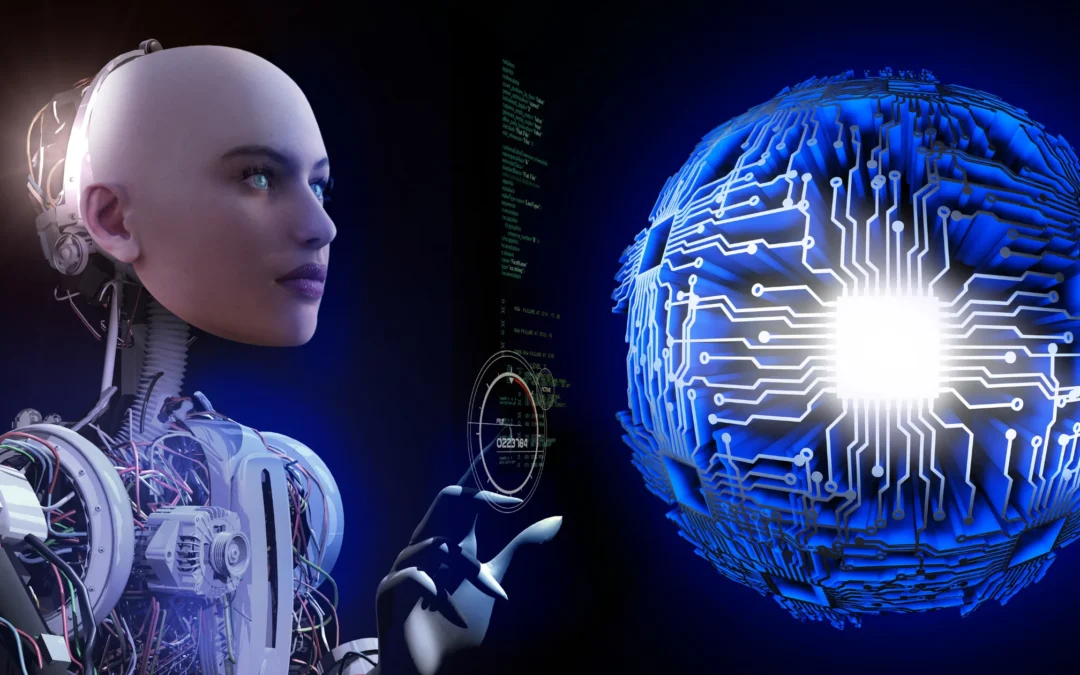Artificial intelligence (AI) is among the most discussed topics in the marketing and advertising industries today. The hype around AI has led to some unrealistic expectations from marketers, but watching what this technology can do for your business is essential. In this article, we’ll look at how AI will change Digital Marketing in 2023 by looking at four key areas: content creation, data analytics, automatization, and creativity.
AI is beneficial for several aspects of Digital Marketing.
AI is a tool that can help marketers with several aspects of their job. For example, AI can help Digital Marketers create content and automate the process. Analyzing data from various sources can also gain insight into consumers’ needs or preferences. This way, companies can create targeted campaigns for different groups based on their behavior patterns and preferences.
Another use case for AI involves creativity: currently, no human beings can come up with new ideas every day, just like we do when we wake up fresh every morning! But luckily, there’s an alternative solution called artificial intelligence (AI). This technology allows humans to make decisions and solve problems faster than ever without experience!
AI-based tools can help marketers with content creation.
AI can help you find the right content for your audience. You may have a specific audience in mind, such as millennials or women. Using an algorithm, it can scan through millions of posts on social media to find relevant posts that fit your criteria by looking at factors like age, gender, and location. It then ranks these posts according to how well they match up with what you want to see from your target audience—and then suggests which ones would be most effective based on those parameters.*
Brands can also use AI to create original copy that fits their brand identity while still being relevant and engaging with customers.*
AI can gather and analyze data.
Data is the lifeblood of marketing, but it’s also the most challenging thing to get your hands on. It takes time, money, and effort for marketers to collect the correct type of information about their customers so that they can make informed decisions about how best to reach them with their messages. With AI-powered analytics tools like Insights Hub (formerly known as Adzio), marketers can access valuable insights from various sources, including customer emails, social media posts, customer service interactions, and even Amazon Dash and Google Analytics for tracking purchases. All without the need for human interaction. No one can prevent you from using these powerful tools: no need for permission when there is already an army behind these machines, ready and willing,
AI will help with creativity.
AI can help with the development of new ideas, and it can also help with the implementation of those ideas. A good example is when you’re developing a new ad campaign, you could use AI to create several versions of your ad using different images or copy until one captures the interest of your target audience. One performance may be better than another at grabbing attention, but if they’re all equally good, then there’s no need for further testing or refinement! Similar ads are used on social media platforms like Facebook and Instagram because people have seen them elsewhere. We naturally repeat this behavior when we use human-created content instead of machine-learning algorithms that keep track of previous visits.
AI will help marketers with automation.
AI can automate repetitive tasks, which will save time and money. For example, you can use AI to develop a landing page optimized for conversion rate by using data from previous visitor behavior on your website or app. You might also want to use AI to create content for social media platforms and email marketing campaigns, requiring significant human involvement before being released into production.
AI will be essential in Digital Marketing in the future
In the future, AI will be vital in Digital Marketing. The reason is simple: it will help marketers with automatization and data gathering and analysis.
AI can automate repetitive or time-consuming tasks like emails or writing SEO content. It also allows you to do things faster than if done manually by humans—for example, creating new landing pages based on customer data from email campaigns or making recommendations based on past business purchases (and other factors).
Businesses of any size can now utilize AI across their entire organization without having access to expensive technology issues caused by limited resources, such as employees who still need to be trained in new technology.
Conclusion
The future is coming soon, but people are still determining how it will look. The AI industry is snowballing and can change our lives in many ways. Learning how AI technology works will help you understand how it could impact your business, so don’t let this opportunity pass you by!
FAQs
1. How will AI change digital marketing?
AI is already transforming many aspects of digital marketing. AI can automate and optimize tasks like customer segmentation, predictive analytics, ad targeting, content creation, campaign management, and more. This allows marketers to be more efficient and effective. AI also enables more personalized marketing at scale across channels. AI is making marketing more data-driven, strategic, and hyper-relevant for customers.
2. How can AI improve content creation?
AI can help generate new content ideas, write drafts, and refine content. AI copywriting tools can produce blog posts, social media captions, emails, ad copy, etc. This content is created at scale, saving marketers time. AI can also analyze data to identify optimal content topics and styles for target audiences. With dynamic creative optimization, AI can test many personalized content variations to improve engagement.
3. How will AI transform social media marketing?
AI powers recommendations, auto-tagging, sentiment analysis, bot customer service, and more on social platforms. AI can track audience demographics, interests, emotions, and intent at scale to optimize social ad targeting and messaging. For organic social, AI can generate content ideas, draft posts, and schedule optimal times to publish. AI chatbots can even automate conversations with followers to qualify leads and book sales.
4. How can AI improve SEO?
AI can generate topics and headlines for articles that target relevant searches and keywords. It can also optimize page content for semantic search, readability, and SEO. AI performs technical SEO by analyzing site structure, backlinks, render times, etc. Sentiment analysis helps create content aligned with user intent. AI also tracks rankings and results to recommend improvements.
5. How will AI impact paid advertising?
AI automation can manage large sets of ads and campaigns, testing variations and optimizing budgets across channels for the best ROI. AI optimizes bids and targets ads based on user intent for paid search. For display/social ads, it adjusts targeting and creativity based on changing performance. AI also powers dynamic creative optimization to personalize ads.
6. How can AI improve email marketing?
AI tools can optimize subject lines and preview text for each subscriber based on engagement data. AI can also generate personalized email content and offers. Send times can be automated based on when each subscriber will most likely open. With dynamic creative optimization, AI tests different versions of each email for the ideal design, copy, etc. AI-powered email assistants can also have personalized text conversations with subscribers.
7. How will AI transform customer retention and loyalty?
AI analyzes customer data to identify those most at risk of churn accurately. This enables personalized retention campaigns. AI can optimize point systems and special offers for loyalty programs based on user interests and behaviors. Chatbots provide instant customer service to enhance loyalty. AI also powers recommendation engines to display relevant products/services to each customer.
8. How can AI improve marketing analytics?
AI excels at finding insights in vast amounts of data. Machine learning algorithms can segment customers, identify attributes of high-value clients, surface marketing performance trends, and predict future outcomes like sales. This enables more strategic decision-making. AI can also optimize the Martha funnel by tracking each customer’s journey.
9. How will AI impact personalization?
AI allows marketers to create targeted segments and tailor messaging at scale. With machine learning, AI can analyze multiple data points on customers to infer their preferences. This data then personalizes each user’s website experiences, ads, product recommendations, app notifications, and more. AI-powered chatbots also enable one-on-one conversations.
10. What are the downsides or limitations of AI in marketing?
While promising, AI has limitations. Algorithms can inherit human biases or make mistakes. Marketers need to provide quality data, oversight, and strategic direction. AI creativity is also bound by the data it’s trained on. For building emotional connections with customers, the human touch still matters. Legal and ethical issues around data privacy also remain. AI works best when complementing human marketers.

